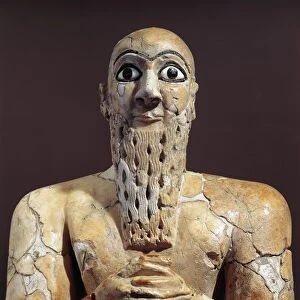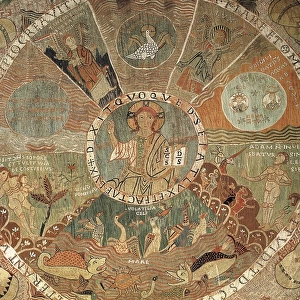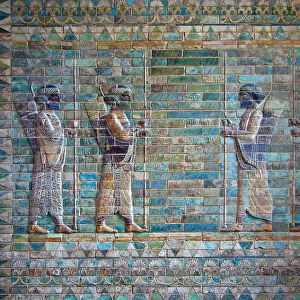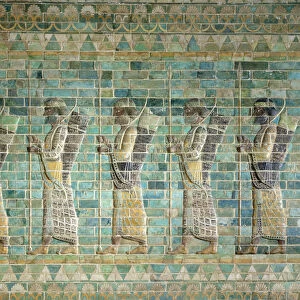Rights Managed > Universal Images Group (UIG) > Art > Archeology
Statuette of Great Singer Ur-Nanshe, circa 2500 b. c. from Mari, Tell Hariri (Syria)
Filename: 940_18_11036514.jpg
Size: 2822 x 3532 (1.2MB)
Date: 9th March 2014
Source: Universal Images Group (UIG)
Source: De Agostini Picture Library
![]()

Wall Art and Photo Gifts from Universal Images Group (UIG)
Statuette of Great Singer Ur-Nanshe, circa 2500 b. c. from Mari, Tell Hariri (Syria)
Sumerian civilization, 3rd millenium b.C. Statuette of the Great Singer Ur-Nanshe, circa 2500 b.C. From Mari, Tell Hariri (Syria)
Universal Images Group (UIG) manages distribution for many leading specialist agencies worldwide
Media ID 9461213
Cross Legged Female Likeness Grey Background Incomplete Semi Dress Singer
EDITORS COMMENTS
This print showcases the exquisite "Statuette of Great Singer Ur-Nanshe" a remarkable artifact hailing from the Sumerian civilization in the 3rd millennium B. C. The statuette, dating back to approximately 2500 B. C. , was discovered in Mari, Tell Hariri (Syria), offering us a glimpse into an ancient world rich with culture and artistic expression. In this portrait-style image, we are presented with a full-length view of the statue. The singer is depicted sitting cross-legged, emanating an air of grace and poise. Crafted with meticulous detail, every curve and contour of her form has been carefully carved by skilled hands. Although incomplete, this sculpture exudes a sense of timeless beauty that transcends its age. Its vertical composition allows us to appreciate the intricate craftsmanship from all angles. Against a simple grey background, our focus is solely on this mesmerizing work of art. The statuette's female likeness serves as a testament to the importance and reverence bestowed upon singers during that era. It symbolizes their vital role in society as entertainers and storytellers who connected communities through music. Through this studio shot captured by Universal Images Group (UIG), we are transported back in time to witness the magnificence of an ancient civilization through one extraordinary piece. This photograph invites contemplation on humanity's enduring fascination with artistry and creativity across millennia.
MADE IN THE USA
Safe Shipping with 30 Day Money Back Guarantee
FREE PERSONALISATION*
We are proud to offer a range of customisation features including Personalised Captions, Color Filters and Picture Zoom Tools
SECURE PAYMENTS
We happily accept a wide range of payment options so you can pay for the things you need in the way that is most convenient for you
* Options may vary by product and licensing agreement. Zoomed Pictures can be adjusted in the Cart.











